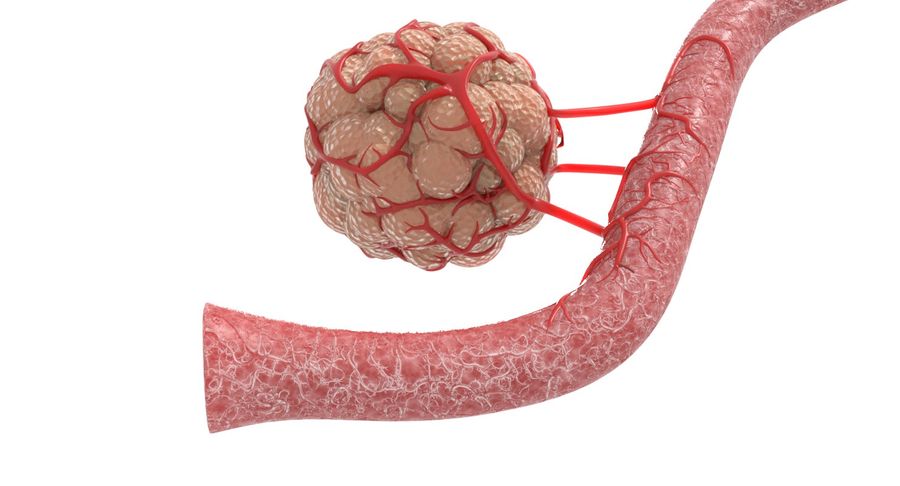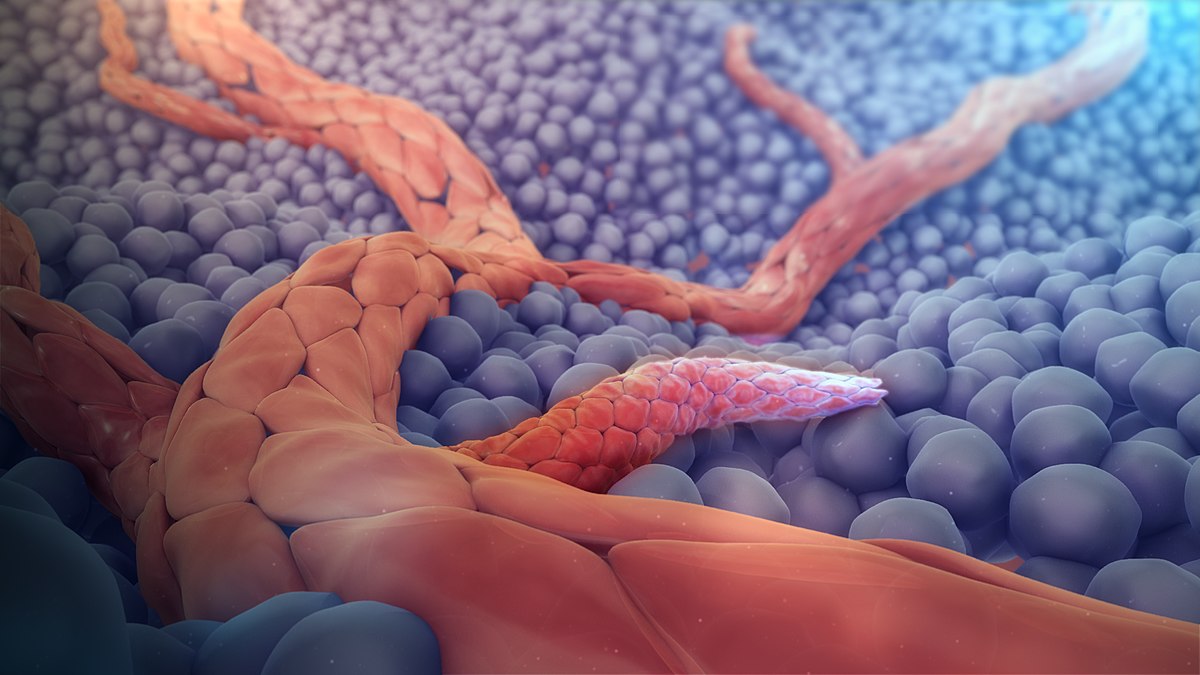Angiogenesis is a physiological process in which epithelial cells form an additional new blood vessel from one blood vessel. Angiogenesis occurs as the cancer tumor develops, making cancer grow and metastasize. Hence, suppressing angiogenesis is considered to be a method to enhance the effect of anticancer treatment. Treatments for angiogenesis inhibition include the use of anti-angiogenic drugs and drug delivery systems.

However, However, Treatments for angiogenesis inhibition drugs still have the disadvantage of affecting both cancer cells and normal cells, causing side effects. Therefore, natural ingredients are considered a candidate for a helpful treatment method without side effects. Fucoidan, a polysaccharide derived from seaweed, is regarded as a promising natural ingredient. Fucoidan is a sulfated polysaccharide mainly composed of fucose and is known to have physiological activities such as antibacterial, antioxidant, antiviral, and antitumor effects. Although Fucoidan has been observed to have an angiogenesis-suppressing impact on cancer in past studies.
Based on the above observation, I want this blog to describe the effect of Fucoidan on angiogenesis and tumor growth using a bird embryo model that is closer to the living body. So, I share the study, “Fucus vesiculosus inhibit new blood vessel formation and breast tumor growth in vivo” by Catrina Oliveira et al.
First, in the study, human breast cancer cells were suspended in Matrigel, used for culturing invasive cells such as cancer cells. And the cells were seeded on the embryo membrane of fertilized chicken eggs and observed. As a result, tumor formation was followed four days later. Then, on the 4th day, they were divided into two groups, and Fucoidan was injected into one of them.
For Fucoidan, they used the one derived from Fucus vesiculosus purchased from Sigma. It was observed that a spherical tumor mass was maintained from the start of the test to the 8th day. Furthermore, angiogenesis was observed in many cases from the 8th day, which means angiogenesis was occurring. Comparing the two groups, they found that the fucoidan group had got smaller tumors and fewer blood vessels (Fig. 1A, B, C).
The result of the study has been shown to suppress the growth of breast cancer tumors and angiogenesis by Fucoidan. Thus, it is probable that Fucoidan will be used as a candidate for a new cancer treatment method for cancer angiogenesis in the future.

Fig. 1A) Fucoidan’s tumor growth and angiogenesis inhibitory effect on human breast cancer cells

Fig. 1B) Number of blood vessels: CTR: Control, CF: Fucoidan

Fig. 1C) Tumor size: CTR: Control, CF: Fucodian
